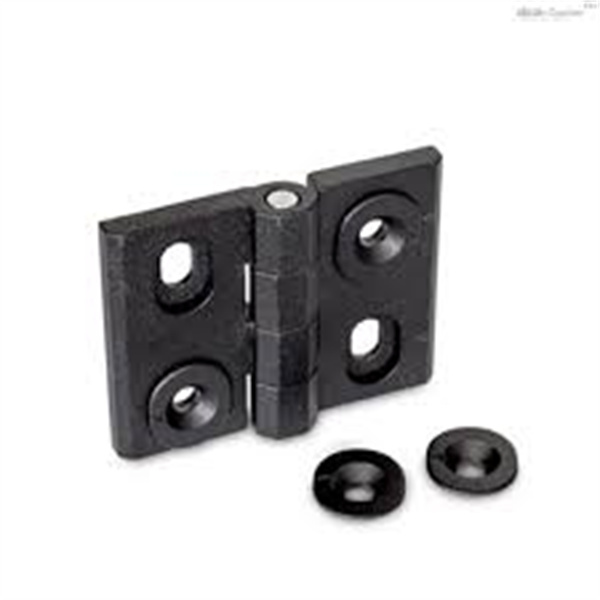The Advantages and Applications of Zinc Die Casting in Modern Manufacturing
2025-03-26
Zinc die casting is a popular manufacturing process known for producing high-precision, high-quality metal parts. This method involves injecting molten zinc alloy into a mold under high pressure, producing durable and complex components used across various industries. In this blog, we will explore what zinc die casting is, its benefits, and its diverse applications in modern manufacturing.
What is Zinc Die Casting?
Zinc die casting is a metal casting process in which molten zinc alloy is injected into a steel mold, known as a die, under high pressure. Once the molten metal is injected into the mold, it quickly solidifies and takes the shape of the mold, forming intricate and detailed components. This method is commonly used for producing small, complex parts with high accuracy and fine detail.
Zinc die casting is a versatile process that can produce parts in a range of sizes and shapes. The most common alloys used in zinc die casting are zinc-aluminum alloys, zinc-copper alloys, and pure zinc. These alloys offer a combination of strength, ductility, and corrosion resistance, making them ideal for many applications.
Advantages of Zinc Die Casting
1. Precision and Accuracy:
One of the standout benefits of zinc die casting is its ability to produce parts with high dimensional accuracy. The process can achieve tight tolerances, often in the range of ±0.1mm, which makes it suitable for applications where precision is crucial. The fine detail achievable in zinc die casting is unmatched by many other metalworking processes.
2. Cost-Effectiveness:
Zinc die casting is considered a cost-effective method for mass production. The durability of zinc components reduces the need for expensive post-production processes such as machining. Additionally, the high speed and efficiency of the die casting process allow manufacturers to produce large quantities of parts in a short amount of time, further reducing production costs.
3. Strength and Durability:
Zinc alloys used in die casting are strong and durable, offering excellent mechanical properties. They exhibit good strength-to-weight ratios, making them ideal for applications that require lightweight but sturdy components. Furthermore, zinc alloys have a high resistance to corrosion, ensuring that parts maintain their integrity over time, even in harsh environments.
4. Design Flexibility:
Zinc die casting allows for the creation of highly complex geometries and intricate shapes that may be difficult or impossible to achieve with other manufacturing techniques. The flexibility of design makes zinc die casting an ideal solution for producing parts with fine details, undercuts, and thin walls, all while maintaining structural integrity.
5. Environmental Benefits:
Zinc is a highly sustainable material. It is non-toxic, recyclable, and widely available. Zinc die casting also generates very little waste, as excess material from the casting process can be reused. This makes zinc die casting an environmentally friendly manufacturing option, contributing to sustainability goals.
Applications of Zinc Die Casting
Zinc die casting is used in a wide range of industries, including automotive, electronics, hardware, and consumer products. Below are some key sectors where zinc die casting plays a crucial role.
1. Automotive Industry:
Zinc die casting is commonly used in the automotive sector for producing small, lightweight, and durable components such as gears, brackets, locks, and handles. These parts require strength, corrosion resistance, and the ability to withstand high pressures, all of which zinc die casting can provide. The process allows for the production of parts with complex designs that help reduce vehicle weight and improve fuel efficiency.
2. Electronics:
The electronics industry relies on zinc die casting to create enclosures, heat sinks, and connectors for electronic devices. The excellent thermal conductivity and shielding properties of zinc alloys make them ideal for protecting sensitive electronics from heat and electromagnetic interference (EMI). Zinc die casting ensures that these components are durable and able to withstand the rigors of everyday use.
3. Consumer Goods:
Zinc die casting is widely used to manufacture products such as locks, knobs, handles, and decorative items. Its ability to create intricate designs and high-quality finishes makes it ideal for items that require both aesthetic appeal and functional durability. Zinc die casting is also used in the production of toys, kitchen accessories, and tools.
4. Hardware:
Many hardware products, including fasteners, hinges, and latches, are made using zinc die casting. The strength and corrosion resistance of zinc alloys make them ideal for use in outdoor and heavy-duty applications. Zinc die-cast hardware is durable, resistant to wear, and able to withstand environmental factors like moisture and chemicals.
5. Medical Devices:
Zinc die casting is used in the medical device industry for producing parts like surgical instruments, diagnostic equipment components, and housings for medical electronics. The ability to create precise, high-quality parts makes zinc die casting an ideal choice for the demanding standards of the medical field.
The Future of Zinc Die Casting
As industries continue to innovate, the demand for high-quality, lightweight, and durable parts will drive the growth of zinc die casting. Advancements in alloy development, die casting techniques, and automation are likely to make the process even more efficient and cost-effective in the future.
Additionally, the environmental benefits of zinc die casting align with growing sustainability trends in manufacturing. The ability to recycle zinc and reuse excess material makes the process an attractive option for companies looking to reduce their environmental impact while maintaining product quality.
Conclusion
Zinc die casting is an essential manufacturing process that offers a combination of precision, durability, and cost-effectiveness. From automotive parts to consumer goods, its versatility and ability to create complex shapes make it indispensable in many industries. As technology advances, zinc die casting will continue to play a significant role in meeting the needs of modern manufacturing, offering a sustainable, efficient, and reliable solution for producing high-quality components. Whether for strength, corrosion resistance, or design flexibility, zinc die casting remains a key component in the production of durable and reliable products across the globe.



